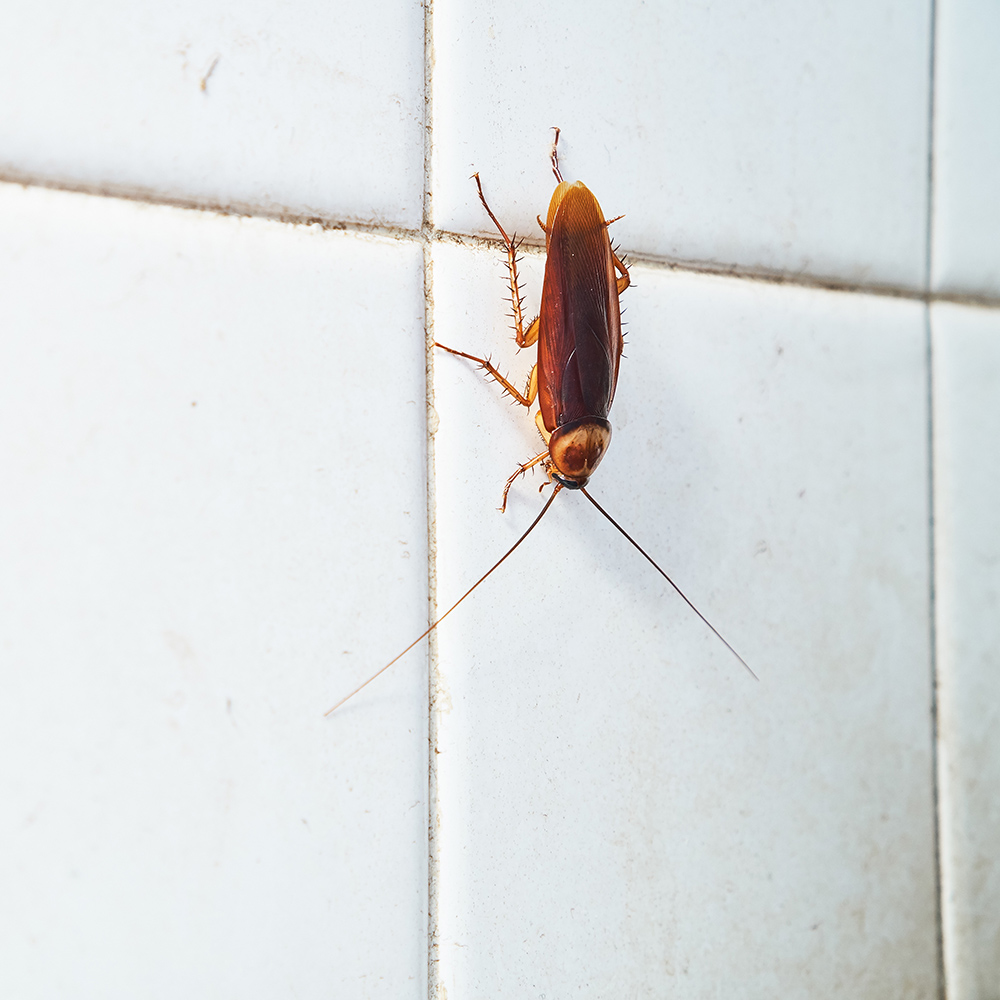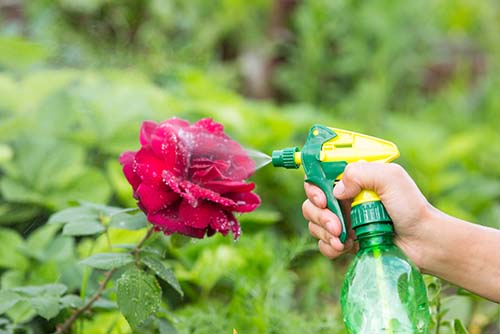Seven Practical Methods To Eliminate Infestations Without Using Harmful Pesticides
Seven Practical Methods To Eliminate Infestations Without Using Harmful Pesticides
Blog Article
The author is making several great observations regarding Pest control in general in the content which follows.

No property owner wants to share room with a pest. Large pest invasions usually relate to the usage of toxic chemicals. Below are seven surefire means to manage pests so you do not have to resort to harmful chemicals.
Set Up a Regular Cleansing Schedule
Parasites usually attack areas that are unclean. Stick to a regular cleaning timetable if you want to make certain your house is pest-free. Constantly wash your recipes, empty rubbish containers, store food effectively, as well as keep great health. Don't fail to remember to pay attention to locations that are frequently disregarded like:
Dispose of Food Scraps Correctly
The primary reason bugs like your residence are all the food! Dispose of food scraps in paper bags and put them in a sealed rubber container. Make sure that crumbs are vacuumed, and counter tops are cleaned down.
Seal Access Points
If you desire bugs to stay out, seal off all possible entry factors. You can make use of a caulking weapon to spot up any type of troublesome areas. You can use climate strips to make certain your home is very sealed.
Ensure Good Air Blood Circulation
Every so often, open your home windows. Make it a point to inspect that your screens are not harmed to avoid infiltration. Notably, some parasites like allergen like moist and also damp environments. If you desire them gone, enable fresh air and sunshine to distribute through your house. This includes the perk of assuring you do not have to manage mold and mildew and mold growth.
Usage Do It Yourself Pesticides
You can DIY pesticides without any chemicals. For example, vinegar and soap remove allergen. In a similar way, lavender climbed, as well as neem vital oils fend off ticks. Pepper mint oil additionally works marvels on a great deal of bugs because the pungent scent drives them insane. Consider making home made concoctions to maintain pests away.
Try an Ultrasonic Plug
It would certainly come in handy to buy a number of ultrasonic plugs for your house. Maintain them near entry points to fend off aggravating pests. These innovative gadgets release acoustic waves that just pest ears can hear. And the noise drives them away! Luckily, your human ears do not identify anything.
Look For Eco-Friendly Pest Control
If you have actually done whatever feasible, however insects still come to your building, you must call a credible pest control company. If you desire eco sound as well as secure services, you have to search for a firm with "environment-friendly" certifications. This indicates they use organic chemicals to eradicate pest invasions to ensure the safety of your household, items, and family pets.
No home owner desires to share space with a pest. Enormous pest problems usually correspond to the use of toxic chemicals. Below are 7 guaranteed ways to control parasites so you do not have to resort to harmful chemicals.
If you desire bugs to stay out, seal off all feasible entrance points. If you have actually done whatever possible, but parasites still come to your residential property, you should call a trusted pest control company.
How to Control Garden Pests Without Chemicals
Nothing compares to growing your own vegetables or sowing a row of your favourite flowers in the garden. As you begin to appreciate the produce, perpetual colours and all the time and effort it has taken for your backyard to be in full flourishing form, the last thing any gardener wants is for their garden to turn into a playground for unwelcome pests.
Investing in pesticides and other toxic preventatives may be the easy answer to rid your outdoor space from invasion, but what you may not realise is that these chemical-based measures damage the entire ecosystem your garden is thriving off. Although your intention may be to deter slugs, caterpillars and fungal plant diseases, eradicating one species will most likely result in ending the cycle of beneficial insects such as ladybugs and lacewings, which prey on pests, as well as pollinators including butterflies, native wasps and bees that help reproduce and sustain the health of your garden. It is not just the insects that are affected by pesticides, in fact, your soil can be damaged by the harsh chemicals too. These chemicals can also stunt plant growth or leave your garden exposed to disease if the overall health of your garden is low. If your backyard is also occupied by children and pets it is best to use natural and non-harmful methods to ensure their safety. In addition, anyone who is growing vegetables and fruits for personal consumption most likely started planting with the intention of fostering an organic garden-to-plate lifestyle. The 100% freshness is guaranteed through growing your own plants, unlike produce supplied through supermarkets. By avoiding pesticides you can ensure your homegrown produce is 100% chemical-free, sustainable and deliciously healthy!
Prevention
The most common problem that gardeners face is the damage to a crop from pests. Establishing a healthy yard from the initial sowing stage through to harvest is the best defence against uninvited garden pests.
Soil - when choosing soil for your garden, consider an all-organic garden mix. Essentially a soil mix should contain a coarse sand and composted pine bark or a combination of green plant waste. Making your own compost is highly beneficial as you know exactly what has gone into your compost heap and thus your soil is a product of previous organic waste. A handy tip to add to any garden soil is espresso coffee grounds. Adding this will help rejuvenate garden areas which have been exposed to disease and acts as a protective barrier against potential plant problems. Tidy your garden space and clean your tools - be sure to clear away any plant debris such as dead leaves and weeds. Ensure you remove any weak plants from your garden that may already be infected with a disease. Why not try Hoselink’s Rake and Sweep-in Leaf Collector to help make maintenance a breeze? It is advised to avoid the transplantation of plants as you run the risk of moving one garden’s pest issue to another uninfected bed. Be sure to rid your plants of disease and insect larvae before moving. It is integral to remove plant matter from your garden space altogether and do not add it to your compost heap. Often we forget that plant disease, insect larvae and eggs can be distributed throughout our garden via our gardening tools. Make sure to wipe away soil residue from your tools after pruning and tidying up. Natural forms of garden pest control
Maintaining and monitoring the garden pests settled amongst your plants has been trialed and developed over the many years that the human race has been involved in domestic gardening. Depending on your preferred method of tackling garden pests, it is guaranteed that chemical pesticides and toxic solutions are not needed to keep your garden healthy and pest-free.
Homemade remedies for insects - preparing your own insect spray is an inexpensive and natural way to rid your garden of unwanted pests. A concoction of noxious (but not chemically toxic) ingredients is recommended to do the trick. Combine garlic, onion, eucalyptus oil, salt spray, powdered chilli or citric oil diluted in water and mix well. Store in a watering can or spray bottle. These ingredients are also well known for their pungent smell, which also lends itself as a repellent to most insects. Applying this mixture on the top of your plant and the underside of any leaves or fruit will provide an oily protective coating which garden pests will not be able to crawl over. Homemade remedy for slugs and snails - whether you mix espresso coffee ground into soil or compost, a diluted spray mixture or sprinkle it over the surface of your plants, espresso is the answer for ridding your garden of invasive snails and slugs. Espresso coffee is strong and needs to cover every part of where the snails and slugs may crawl. Because snails and slugs have very absorbent skin and secrete mucus to help them move, the potent nature of caffeine dries out and kills the reproductive cycle of the mucus gland. Without this gland the snail or slug can’t survive. Homemade remedies for fungal diseases - it is best, when treating infected plants, to evaluate the affected area of the plant first. A spray will work sufficiently in targeting one particular area and should be used in the early morning or evening, when the sun is less present, to avoid burning the plant. An apple cider vinegar mixture is best used on any plant infected with a disease and works particularly well on shrubs and small trees as well as roses. A bicarbonate soda, vegetable oil or detergent spray is best to treat mildew as well as having acidic qualities to suffocate insect egg cases. Seaweed/kelp spray is a great preventative measure to spray on all seedlings. Milk spray has several uses for treating fungal disease on plants too. Milk changes the pH level of leaves due to added foreign proteins which are not usually present in a plant. These proteins make it an inhospitable environment for disease to spread. Chickens - if you are lucky enough to have chickens on your property they will provide the best natural control system for garden pests. Chickens love to eat all types of beetles and grubs and will actively search for such bugs when scratching around in the garden. In doing so the chooks will turn your soil, keeping your garden aerated, preventing the settlement of garden pests and bacterial diseases. Chickens also provide one of the most valuable sources of natural compost. Chicken faeces are rich in essential nutrients, which help support a healthy garden environment, and are an excellent natural fertiliser. https://www.hoselink.com.au/blogs/gardening/how-to-control-garden-pests-without-chemicals

I'm just very occupied with Control Household Pests Without Scary Poisons and I'm hoping you enjoyed reading our blog posting. Are you aware of somebody else who is truly interested in How to Control Pests Without Pesticides? Feel free to promote it. I cherish reading our article about Control Household Pests Without Scary Poisons.
Check It Out Report this page